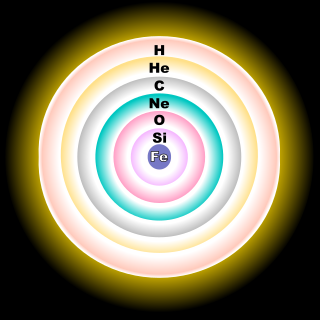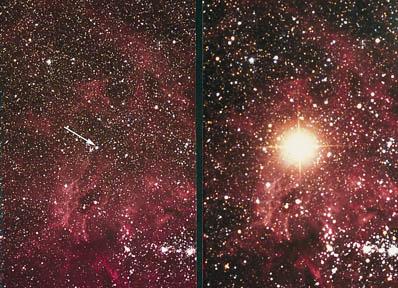BDanielMayfield wrote:orin stepanek wrote:IMHO; since Eta Carinae spewed out those two lobes; I would think that would extend it's life some! My reasoning is that a lot of pressure would have been alleviated within it's core!

I think what you suggest is at least to some extent a mathematical certainly Orin, since the fusion rates in the cores and in the case of very massive stars the shells surrounding the cores are functions dependent in part on both temperature and pressure, and both must decrease somewhat as intense stellar winds carry away much mass.
You could be right, but I'm not sure. Remember that it's the state of the core that decides whether or not there will be a supernova explosion. I once read that the outer layers of an evolved star "have no idea" what the core is doing, so a supernova explosion always comes as an utter surprise to the poor outer layers of the star!

Similarly, I'm not too sure that an evolved core "knows" what the outer layers of the stars are doing. Blowing off parts of the outer layers of the star will not change the state of the core. Professor emeritus Jim Kaler, an experts on stars, wrote this about a Wolf-Rayet star (an enormously mass-losing former supergiant star with an evolved core:
The windy WR star probably started with somewhere around 40 solar masses and has now stripped itself down by an unknown amount, perhaps to under 10. Only a few million years old, the visually fainter Wolf-Rayet component is almost certainly in the last stages of preparing to blow up as a supernova.
So even though this star may have blown off so much of its outer layers that it may have lost three quarters of its mass, it is still believed to be doomed to go supernova!
BDanielMayfield wrote:Tszabeau wrote:After reading the linked info., I am fuzzy on why Eta Carinae is considered a "rogue star". I thought a rogue was on it's own and not part of a larger system such as galaxy. For example, a rogue planet would not be part of a solar system. I assume that my assumptions must be wrong so what makes it rogue?
You’re right that calling Eta Carinae a “rogue star” is now a bit confusing Tszabeau. I think they may have meant rogue in the sense of beast or maybe monster, in view of its huge mass and explosive disposition and destiny. I like your comparison to rogue planets, and I think it would be sensible to use the expression only for stars that have been thrown or pulled lose from a galaxy.
I agree that using the term "rogue star" for Eta Carinae is rather confusing.
Ann

